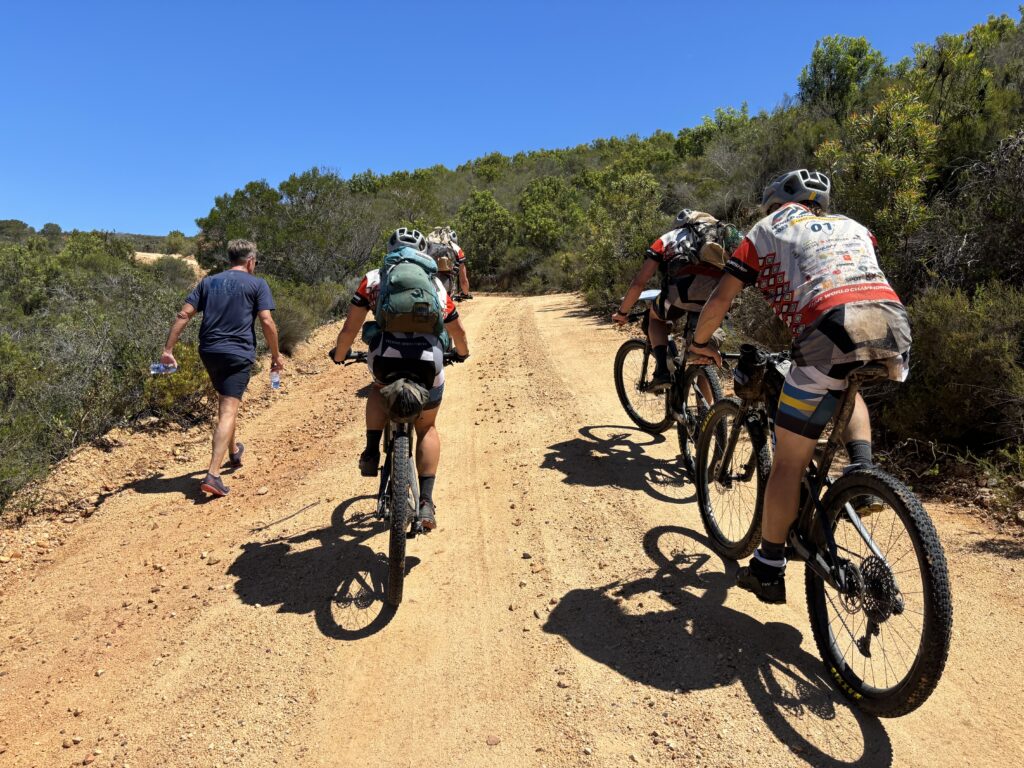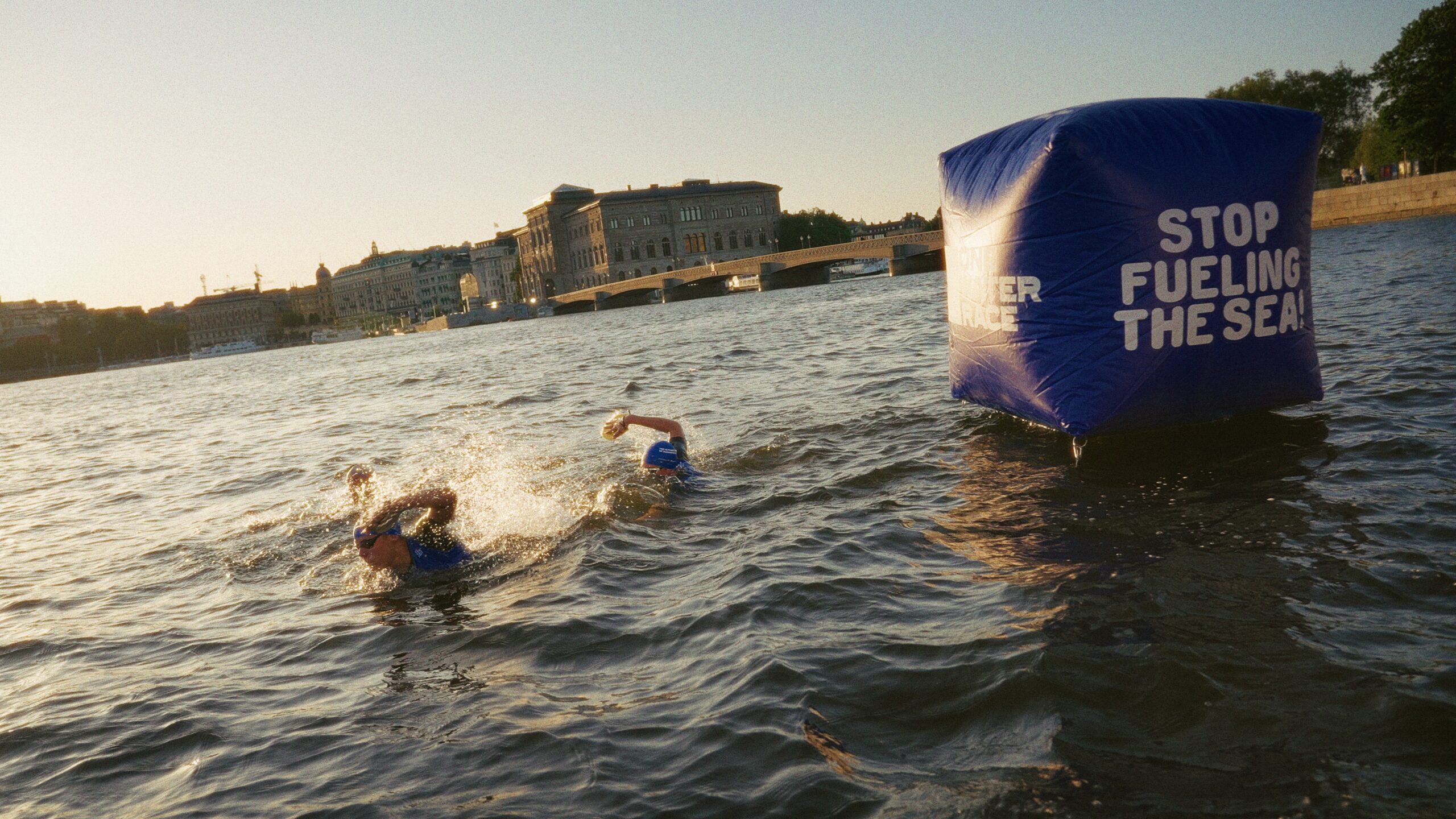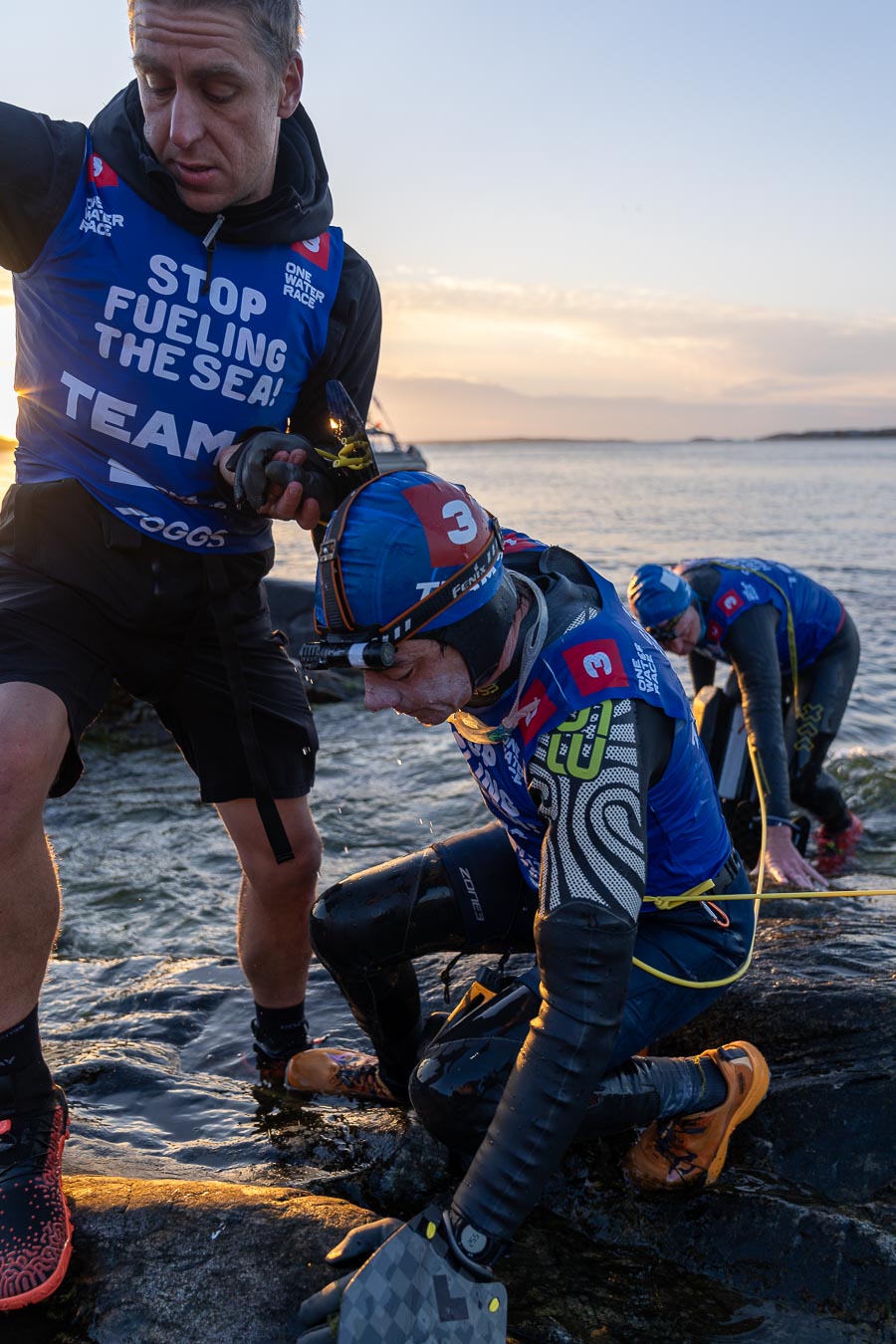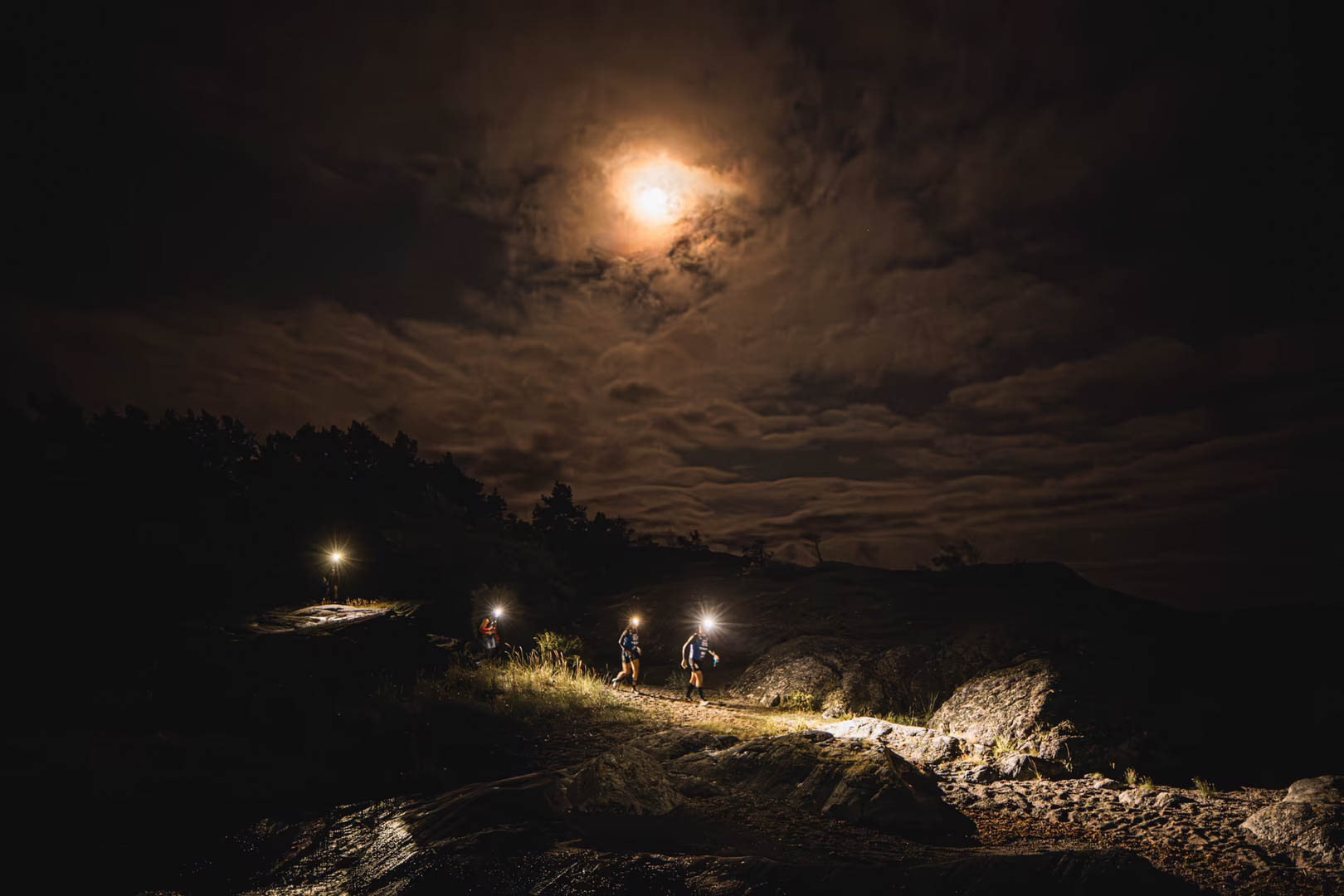We recently arrived back from South Africa and the World Championship of Adventure Racing (Expedition Africa). The trip was truly incredible from start to finish. The African landscapes that unfolded before us were breathtaking when we drove around the 900 km long race course. From huge dunes to deep lush valleys and high mountains and endless trails. By trekking, mountain biking, climbing, and kayaking, over 100 teams from all over the world took on this challenge.
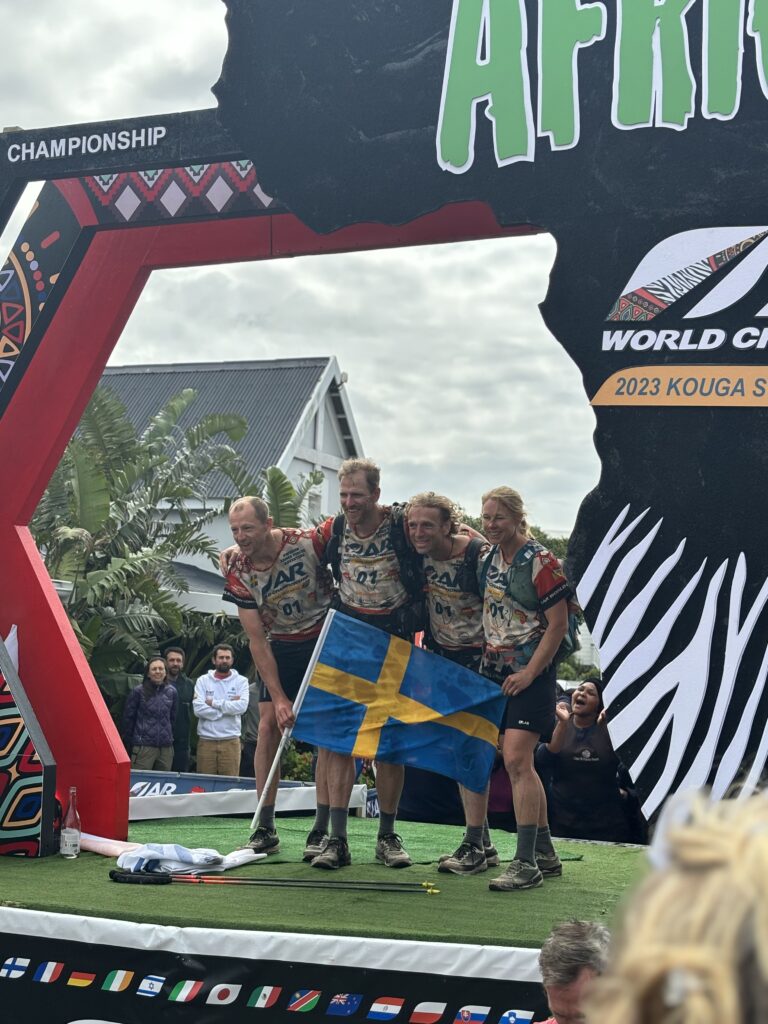 The winning team, the Swedish Armed Forces, made it to the finish line in an impressive time of 118 hours, but the race lasted for a full 9 days, and the last teams fought until the end. Approximately 30 teams managed to complete the competition as a complete team.
The winning team, the Swedish Armed Forces, made it to the finish line in an impressive time of 118 hours, but the race lasted for a full 9 days, and the last teams fought until the end. Approximately 30 teams managed to complete the competition as a complete team.
After the competition, our founder Thomas Ogander, and partner and GIH representative Dr Marcus Moberg delivered an insightful presentation shedding light on the One Water Race and our dedication and approach to pushing limits from a scientific perspective.
We found it intriguing to contemplate the similarities and differences between One Water Race and Adventure Racing, both from the standpoint of athlete performance as well as the race organization’s perspective. We are truly amazed by both aspects. The competitors face an incredible challenge, and the race organization managing the large numerous teams over several days in such a vast and challenging geographical environment with the distances involved are incredibly difficult to handle logistically.
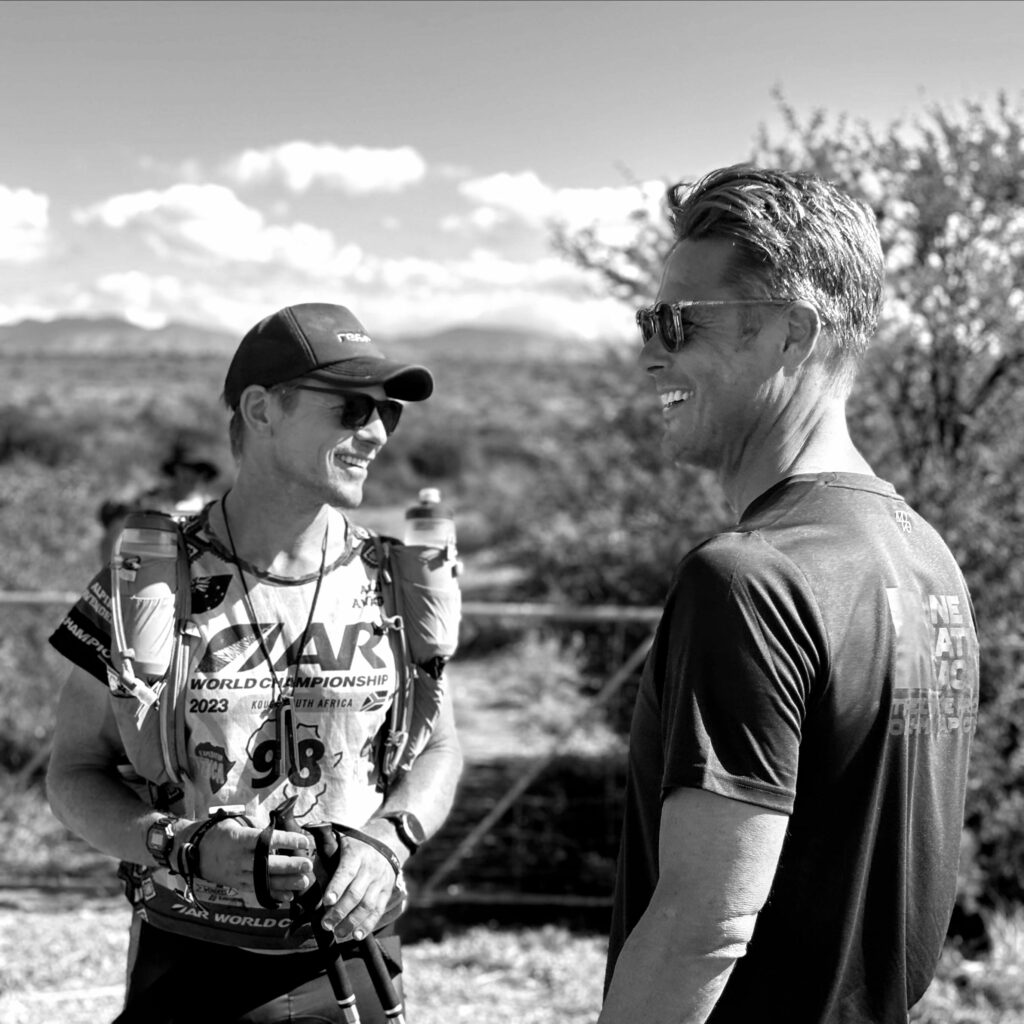 We met some competitors who also participated in the One Water Race and were curious to know which race could be considered the most challenging, or if such a comparison was even possible. In short, the answer was in Expedition Africa, the most demanding challenge was the fluctuating temperatures, with hot days and cold nights. However, the transition between disciplines provided a mental respite, making the long race feel less burdensome. When participating in the One Water Race, one must face the daunting challenges of enduring the cold, persistently being wet and swimming extensively. These obstacles prove to be not only physically demanding, but also mentally grueling, as the race entails constant running and swimming without any variation in disciplines.
We met some competitors who also participated in the One Water Race and were curious to know which race could be considered the most challenging, or if such a comparison was even possible. In short, the answer was in Expedition Africa, the most demanding challenge was the fluctuating temperatures, with hot days and cold nights. However, the transition between disciplines provided a mental respite, making the long race feel less burdensome. When participating in the One Water Race, one must face the daunting challenges of enduring the cold, persistently being wet and swimming extensively. These obstacles prove to be not only physically demanding, but also mentally grueling, as the race entails constant running and swimming without any variation in disciplines.
The significant difference is the constant fast pace of the OWR without any opportunity for pause. Then of course finishing the Expedition Africa in just over 4 days is a significant difference in pace and challenge to those who took 9 days to complete the distance. Even between the winning team Swedish Armed Forces and the number two team, Spanish Vidaraid there were 6 hours, and a nearly 10-hour gap to the third-place team, Estonian Ace/La Sportiva.
Both races are truly exceptional challenges that for example require profound endurance, and capacity to cope with sleep deprivation and pain, but the races differ in nature.
“As for OWR, you have had to witness Expedition Africa live to truly embrace the extreme distance, as well as the exceptional physical and psychological challenges the athletes encounter. Both races are truly exceptional challenges that for example require profound endurance, and capacity to cope with sleep deprivation and pain, but the races differ in nature. OWR has a higher intensity, allowing only minimal time for rest and nutrition, as well as consists of a course that requires a very high capacity for orienteering. Expedition Africa offers other obstacles such as heat management, fluid intake, and more varying exercise capacities which require a large skill set for the athletes. For me as a researcher in human physiology, I’m eager to continue to explore how we via research can learn more on the challenges of adventure racing.”
– Dr Marcus Moberg, GIH – The Swedish School of Sports & Health Science
